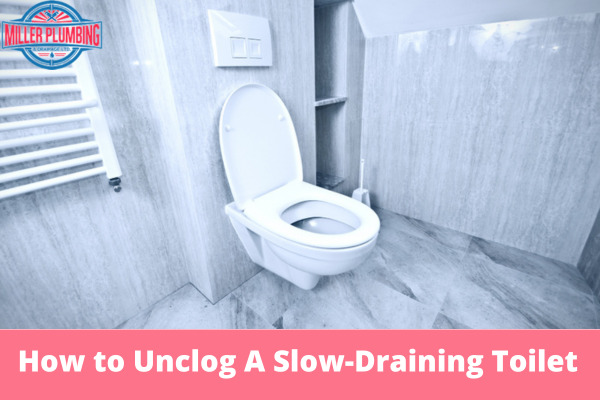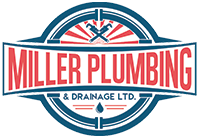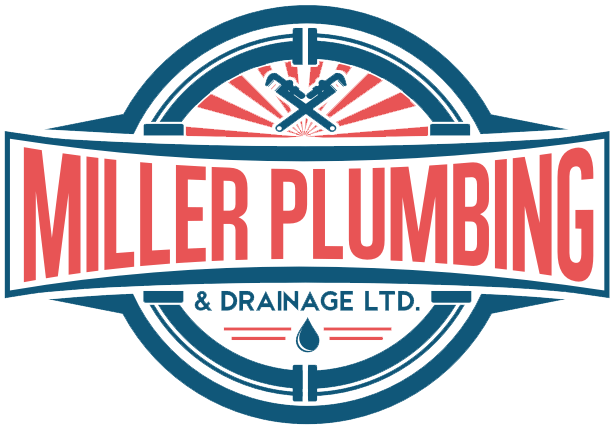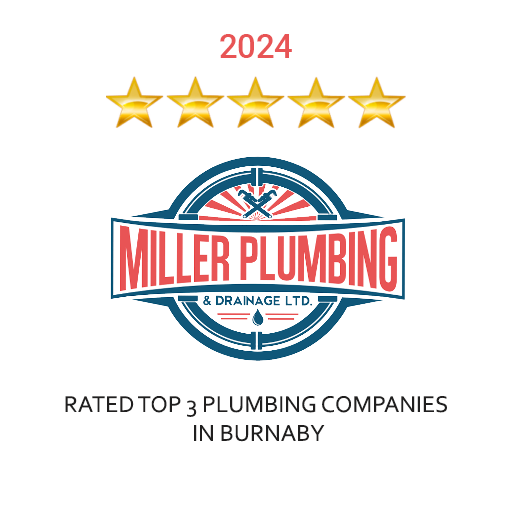Unclogging a Slow-Draining Toilet: Step-by-Step Guide
Is your toilet draining slowly? Clogged toilets can be a major inconvenience, but with the right tools and techniques, you can unclog them yourself.
In this blog post, we’ll provide you with seven easy steps to help clear up any clogs that may have built up in your toilet. From identifying the blockage to prevention tips for avoiding future problems. Read on to learn how to unclog a slow-draining toilet today!

Step 1: Identify the Clog
Before attempting to unclog a slow-draining toilet, it is important to identify the cause of the clog. Common causes of toilet clogs include items that are too large for the drain, such as feminine hygiene products or toys, the buildup of soap scum, hair and foreign objects, and tree roots that have infiltrated the pipes. Once the cause of the clog is identified, you can decide on the most effective method for removing it.
Step 2: Use A Plunger to Loosen and Remove the Clog
Using a plunger is a common and effective way of removing a clog from a slow-draining toilet. Start by filling the basin with enough water to cover the plunger cup. Firmly press the plunger down over the toilet drain and pump it vigorously up and down several times. This will create suction, forcing any blockages to loosen and be removed.
Step 3: Try Using Boiling Water to Dissolve Grease or Soap Scum Buildup
Boiling water is an effective way of removing grease and soap scum buildup from a slow-draining toilet. It is important to use only boiling water to effectively dissolve the deposits. Start by filling a pot or kettle with enough water to cover the entire clogged area. Once the water has come to a boil, slowly pour it directly into the clogged section of the toilet. The boiling water helps to dissolve any buildup that may be causing the blockage.
Step 4: Check for Blockages in the Drainpipe with A Closet Auger
A closet auger is a plumbing tool designed to dislodge blockages in a toilet drainpipe. It consists of a long, flexible cable with a sharp, curved end that is inserted into the drainpipe and manipulated to remove any clogs or obstructions. The closet auger should be used with caution as it can cause damage to the pipes if not used properly.
Step 5: Avoid Flushing Items Like Paper Towels and Wipes Down Your Toilet
Flushing items like paper towels and wipes down the toilet can cause major plumbing problems. Paper towels and wipes do not break down in the water like toilet paper, meaning they can accumulate in the pipes. This build-up of material can create blockages that are difficult to remove and may require professional help. Additionally, large items such as these can cause blockages in the trap of the toilet, leading to a slow-draining bowl.
Step 6: Consider Investing in An Inexpensive Drain Cleaner Product
Investing in inexpensive drain cleaner products is a great way to keep your toilet from clogging or draining slowly. These products contain powerful chemicals that will effectively break down and dissolve any blockages without damaging the pipes. Additionally, these products are relatively easy to use and can help reduce the time and effort required to unclog a slow-draining toilet.
Step 7: If All Else Fails, Call A Professional Plumber for Help
When all attempts have been exhausted, it may be time to bring in a skilled plumbing expert for assistance. Professional plumbers are experienced and skilled at unclogging even the toughest clogs. They have access to specialized tools, such as drain snakes and hydro jetters, that can quickly and effectively unclog blocked drains. Additionally, they know how to diagnose and repair deeper plumbing issues that may be causing the clog.
Struggling to Unclog a Slow-Draining Toilet?
Whether you choose to take on the task of unclogging your toilet yourself or call in a professional plumber, it is important to address slow-draining toilets as soon as possible. Miller Plumbers are experienced and skilled at taking care of any clog quickly and efficiently so that you can get back to enjoying your plumbing system without worry. Contact Miller Plumbers today!





